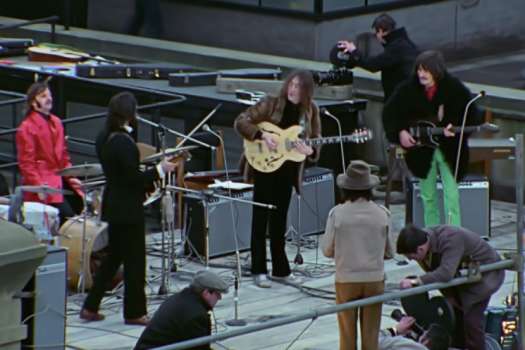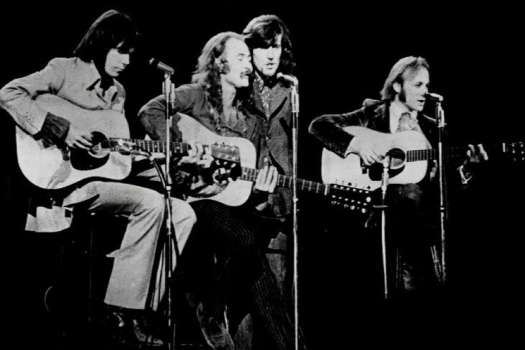Robert Fripp's King Crimson project has been perpetually evolving for 30 years, making a look back to its beginnings all the more interesting. Virgin is releasing the entire King Crimson catalogue as "mini-vinyl" versions including all the original gatefold artwork and sleeve notes with digitally remastered CDs. The first four albums from 1969 to '71 are now available featuring an additional booklet filled with press clippings and media releases from Fripp's archives. The brilliant inclusion of negative reviews in the packaging provides some of the best insights into how the band was perceived at the time. "I can discern neither melody nor sense in any of it... the abyss where modern jazz and rock meet," quips one scribe. Ponderous, indulgent, pretentious and overly complex could well describe much of the material on the band's first four albums, which document Fripp's recorded work with lyricist Pete Sinfield. On the other hand, these are defining moments in '70s progressive rock, with its powerful intensity and epic dynamics. While 1969's In The Court album provided the band's greatest commercial success with its big, bombastic and hard psych rock, it was the band's use of classical structures, folk and jazz influences that marked their uniqueness. The level of commitment required to work with the single-minded Robert Fripp obviously took its toll during these years. By the time the second album came out, Fripp was the only playing member of the group remaining. Aside from the driving rock of "Cat Food," In The Wake Of Poseidon carried forward in a more experimental direction as Fripp became the undisputed central figure. After mellotron player Ian McDonald and drummer Mike Giles split, vocalist and bassist Greg Lake left to join Nice organist Keith Emerson in ELP before the second album was even finished. Following in the footsteps of Lake, new vocalist for the Lizard album, Gordon Haskell quit just before the third album came out; it heightened the band's folk rock and jazz influences with a notable guest appearance by Jon Anderson from Yes. The third Crimson vocalist, Boz, is heard on the band's fourth album, Islands, but it's the instrumental tracks like "Sailor's Tail" that are the most ambitious and pack the biggest punch, showing Fripp as the creative guitarist and composer he continues to be.
(Virgin)King Crimson
Islands

BY Ian DanzigPublished Mar 1, 2000



